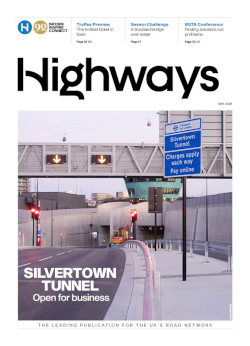Two leading mainstream magazines, Forbes and the New Statesman, have published articles questioning the likelihood and viability of driverless cars - listing questions which the driverless industry would do well to counter.
In the New Statesman, public transport expert and former Labour London mayoral candidate Christian Wolmar says the takeover of mainstream transport by driverless vehicles is "about as likely as the long-awaited arrival of the futuristic jet packs of 1960s comic books."
"Consider an autonomous vehicle trying to move into traffic," he suggests, "a manoeuvre that is impossible without some element of risk. Human beings often do it through some sort of interaction ' say, flashing lights, or eye contact ' and so an element of risk-taking would have to be introduced for autonomous vehicles, too. Once that happens, accidents will occur, and what parent would send his children off to school in a vehicle with risk hard-wired into its software?
He also questions whether the cars will ever be fully autonomous, or whether they will merely have a lot of automatic driver assistance systems. "Whenever I ask people in the field what we can expect by a certain date, it never amounts to anything like a fully autonomous vehicle but rather a set of aids for drivers," he continues. "This is a crucial distinction. For this technology to be transformational, the cars have to be 100 per cent autonomous. It is worse than useless if the 'driver' has to watch over the controls, ready to take over if an incident seems likely to occur. Such a future would be more dangerous than the present, as our driving skills will have diminished, leaving us less able to react."
And he continues to worry that the Government might not invest in transport in the shorter term: "Why bother to build infrastructure, such as new Tube lines or tram systems, or to push for road pricing, if we'll all end up in autonomous pods? Google all but confesses that its autonomous cars are intended to be an alternative to public transport ' the opposite of a rational solution to the problems that we face. So why is George Osborne so interested in this technology? One possibility is that he considers it a way of weakening two of the last remaining bastions of union power: lorry and taxi drivers. Another is that he hopes it will provide a boost for the UK car manufacturing industry. Either way, the revolution, when it comes, will not be driverless."
Meanwhile at Forbes, innovation strategy expert Chunka Mui lists "seven driverless car doomsday scenarios", which he says cover a wide range of potential issues, including technical viability, operational resiliency, and even fears that driverless cars might work too well and thus unleash a host of unwanted secondary effects.
The list includes fears that there are two many scenarios where the driverless operation remains unsolved, such as pulling into traffic, adverse weather and dealing with other drivers' gestures. He questions the technology's robustness, saying theoretical solutions might not be reliably translated to the real world. He asks whether the cost of all the technology required will be too high, whether they can mix with human drivers, how regulatory and liability hurdles will delay the technology, and also suggests that driverless cars will be hacked.
His final worry is social, though, claiming driverless cars will cause economic devastation. By some estimates in the US, he says, 10% of all jobs are driving related. "Driverless vehicles will put millions of Americans out of work, including taxi, Uber, bus and truck drivers," he writes. And, the jobs at risk do that stop there. Add auto suppliers, new car dealers, collision and repair shops, tow truck operators, insurance agents, insurance adjustors, insurance call-center agents, ambulance drivers, emergency room personnel, and untold others jobs related to how cars are design, made, sold and operated today."
It seems that, while there is a lot of excitement about driverless vehicles, much work is still needed to convince some in the mainstream.
Picture credit - from Christian Wolmar's article in the New Statesman.





